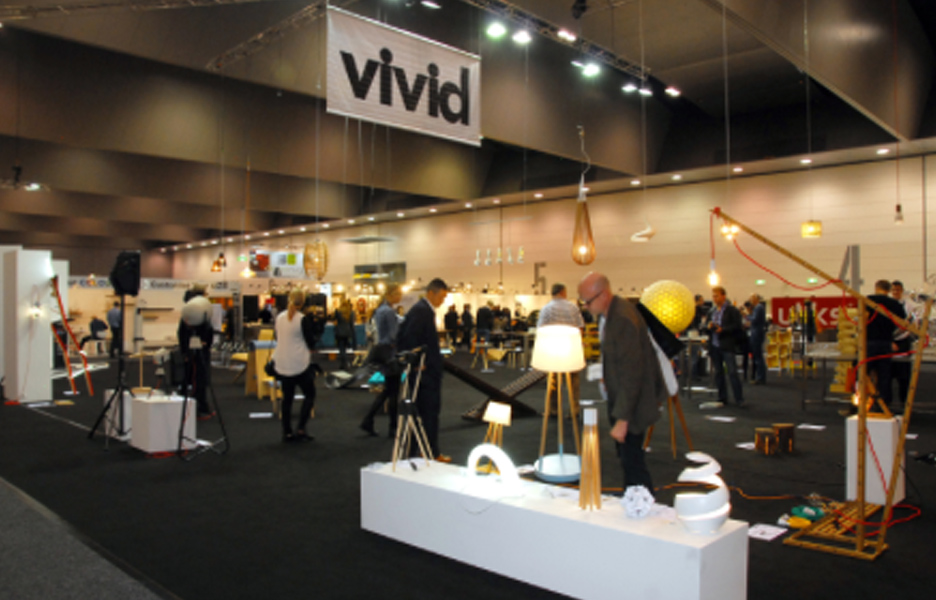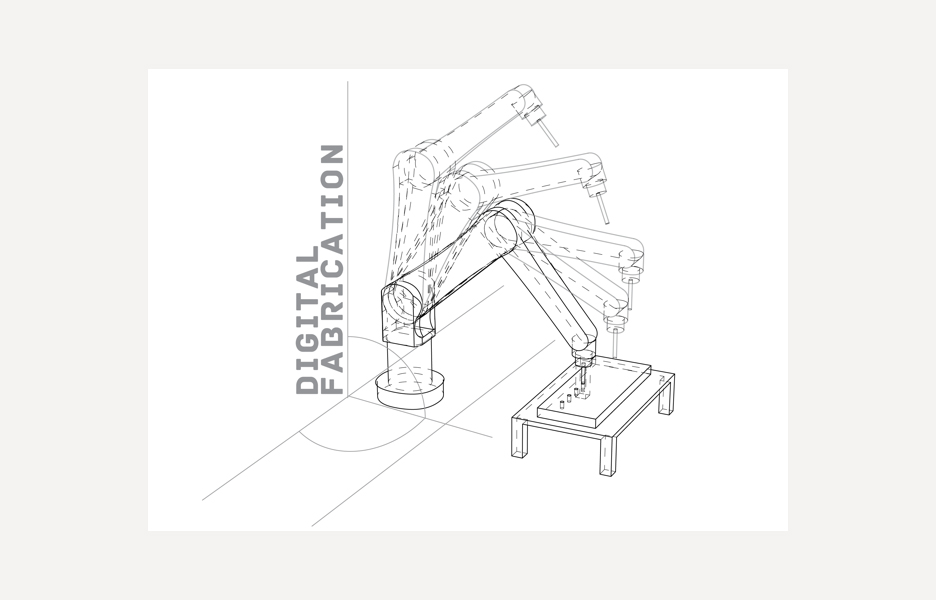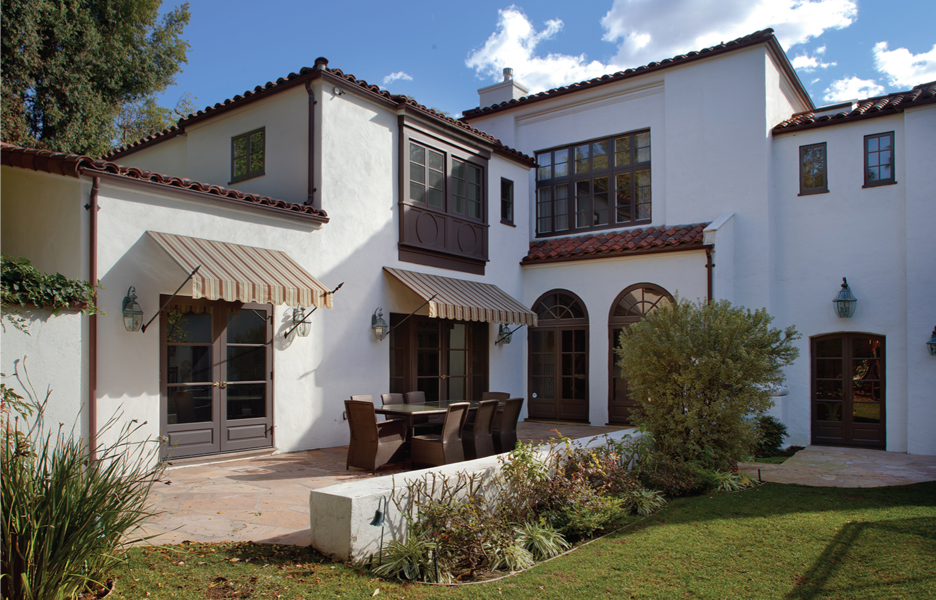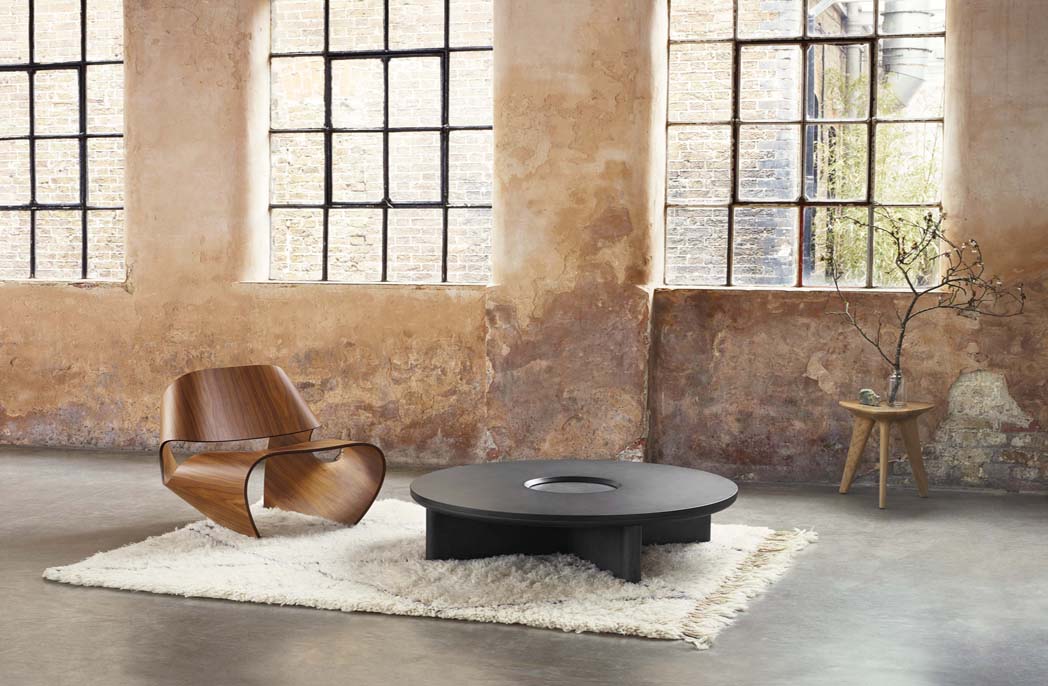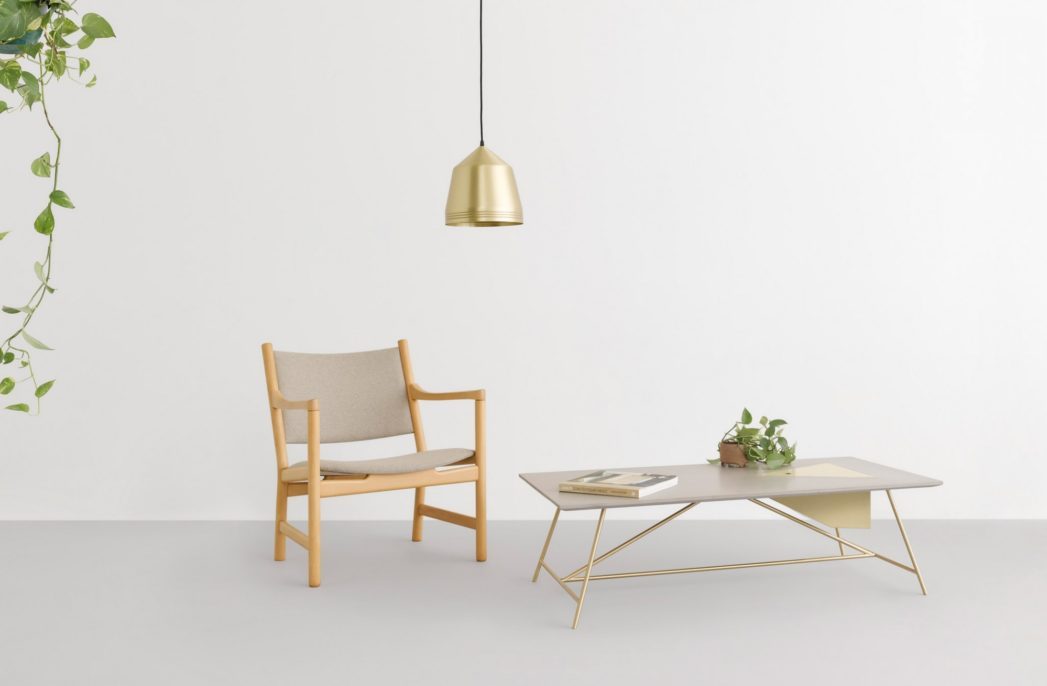
Corporate Culture’s Timber Triumph
Corporate Culture’s Timber Triumph
Share
In an interview with Australian Design Review, CEO of Corporate Culture, Richard Munao, shares insights into the company’s commitment to supporting Australian-made, designed and manufactured timber furniture through their recent acquisition of Mark Tuckey Furniture.
This acquisition marks a significant milestone for Corporate Culture, an Australian company renowned for its commitment to high-end design principles and the use of natural materials.
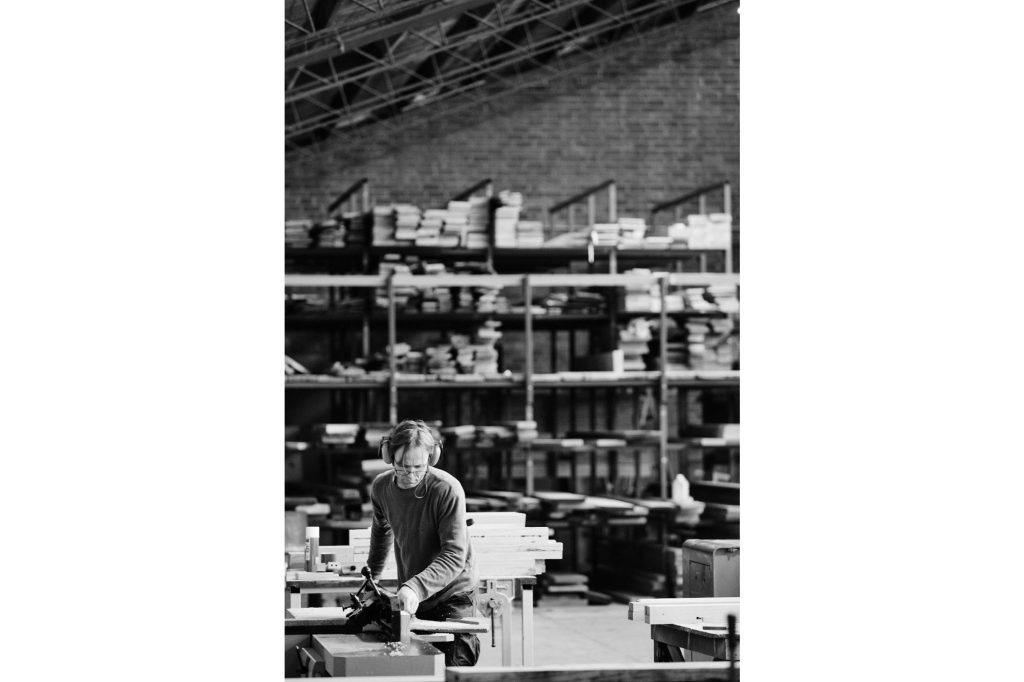
A passion for woodworking
Corporate Culture’s journey into the realm of furniture design is rooted in Richard Munao’s background in cabinetry. Munao emphasises the emotional connection he has always had with working with wood.
“I developed a passion for woodworking during my school days. After I completed school, I secured an apprenticeship as a cabinet maker. That was my entry point into the world of furniture, primarily in residential settings. Afterward, I transitioned into furniture servicing, where I would visit people’s homes to address issues, ultimately transforming discontent customers into satisfied ones.
Munao found genuine enjoyment in engaging with customers, which led him towards roles involving sales, management and marketing.
“As time passed and after many years of experience in both residential and commercial sectors, you can see how this journey influenced the way I curated the collections we now represent,” he reflects.

Alongside supporting Australian-made furniture, Corporate Culture has championed Scandinavian design principles, prioritising natural materials and durability. This commitment to timeless, functional design has garnered them a loyal following over the years.
“Many factors drew us towards Scandinavian design, and a significant one is the remarkable treatment of timber. They have a knack for handling wood to maintain its inherent beauty and authenticity – often opting for natural soap washing over lacquer. Scandinavian designers have a penchant for creating enduring pieces, such as the timeless Wishbone chairs and the Fritz Hansen series, ensuring longevity.”
“Likewise, you’ll find people who’ve held onto their Mark Tuckey furniture for a solid 15 to 20 years. They might be in the process of downsizing or moving to a different home where their furniture just doesn’t fit the bill anymore, and they decide to part ways with it. But what’s interesting is that many of these same people, who’ve had such long-term relationships with their Mark Tuckey pieces, end up circling back for more. It’s like the brand’s quality and timeless design just keeps them coming back,” says Munao.
The acquisition of Mark Tuckey Furniture
The story of the Mark Tuckey Furniture acquisition began with a phone call, a connection between two like-minded individuals who share a passion for craftsmanship and design.
Munao reached out to Mark Tuckey, the owner of the eponymous furniture business that has thrived for over 30 years. During their conversation, Tuckey revealed a surprising decision — after 30 years of operation, he was considering selling or closing the business at the end of July. Despite this monumental decision, he had made no preparations for the sale, having made up his mind just a day prior.
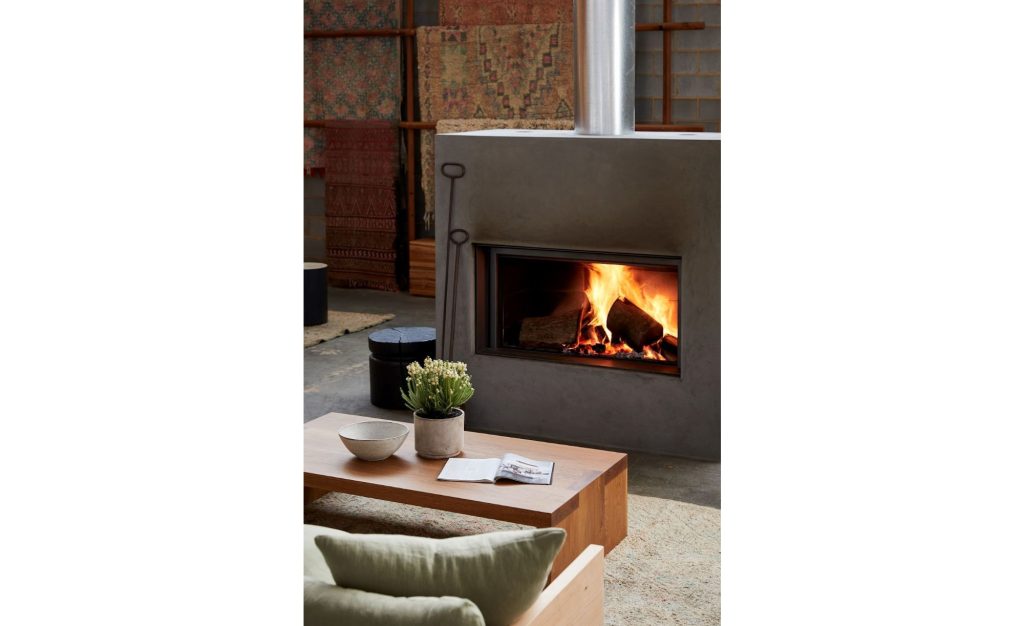
Munao, undeterred by the unorthodox circumstances, saw an opportunity. “I asked Mark for the business’s financial information, and even though it was unexpected, I saw potential. The passion for their work was evident, and I knew with the right sales and marketing strategies, we could help this business flourish,” Munao recalls.
Acquiring a furniture business and keeping Australian manufacturing alive
One of Corporate Culture’s key motivations for acquiring Mark Tuckey Furniture was a commitment to keeping Australian manufacturing, especially in the furniture industry, thriving. Munao explains their vision for the acquisition:
“Mark Tuckey had been manufacturing for 30 plus years, and I just thought we want to keep Australian manufacturing alive, particularly in the furniture sector. By acquiring Mark Tuckey, we aimed to vertically integrate production and develop new products with the acquired facility, all while supporting local designers.”
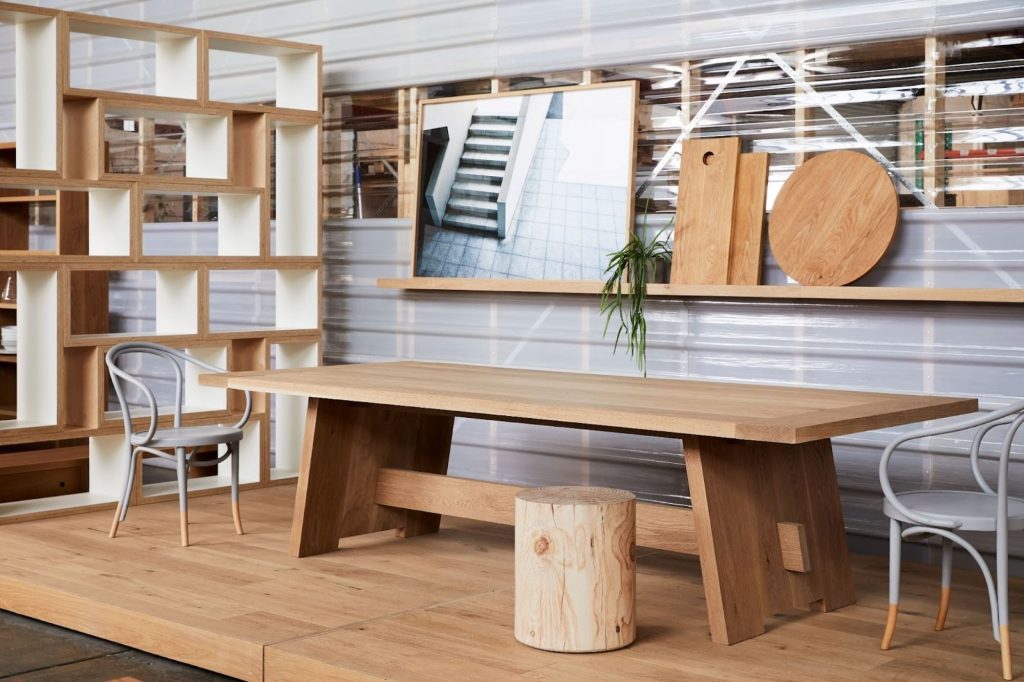
In a world where imported products often dominate the market, Corporate Culture is taking a different approach.
“With our brands like Neu, we invest in working with designers to physically prototype products, take them to market, design shows and create imagery. We don’t solely rely on designers to do it all. This allows us to control our supply chain, maintain our margins, and remain competitive in the market, without relying on imported products with inflated prices,” Munao emphasises.
Sustainability and local sourcing: A growing trend
Sustainability has become an integral part of the furniture industry, and Corporate Culture intends to further this cause through its acquisition of Mark Tuckey Furniture. Munao observes a trend of people buying and holding onto Mark Tuckey furniture for long periods, often passing it down to new owners. He believes that this longevity reflects the shared values of Mark Tuckey and Corporate Culture.
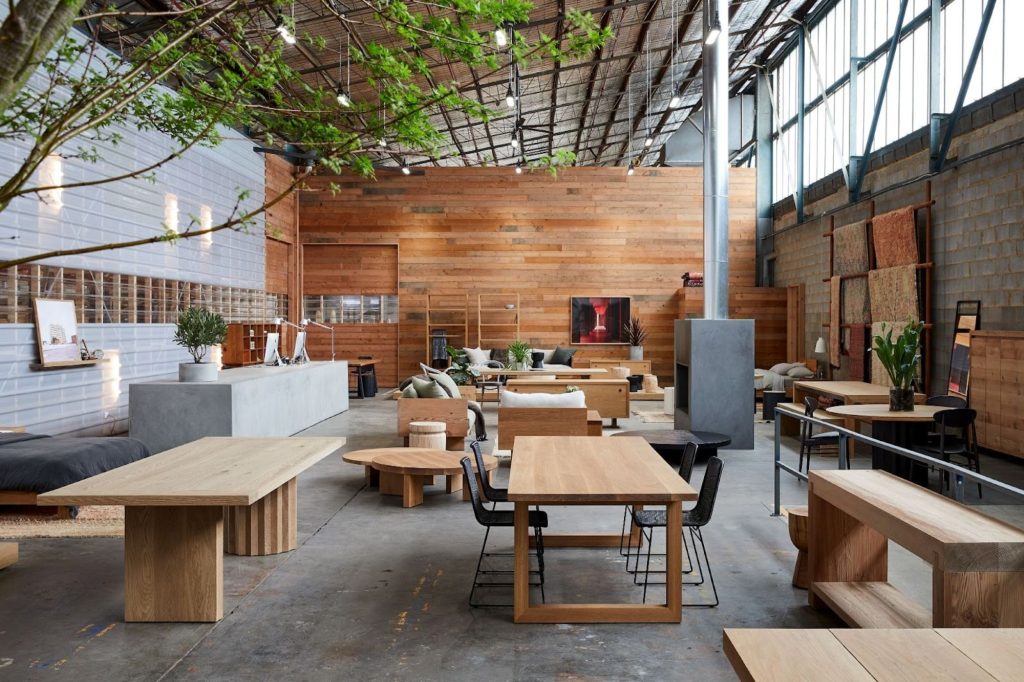
“People are realising the value in buying local, especially for sustainability reasons, due to recent supply chain disruptions such as COVID-19. Local products have proven to be more durable and less prone to fads, making them a better investment in the long run,” Munao states.
Expanding horizons through partnerships
Looking to the future, Corporate Culture has ambitious plans for the Mark Tuckey Furniture acquisition.
Munao is keen to open up the Mark Tuckey workshops to work with artisans and designers in various cities to refinish vintage furniture, preserving the original character and giving it new life.
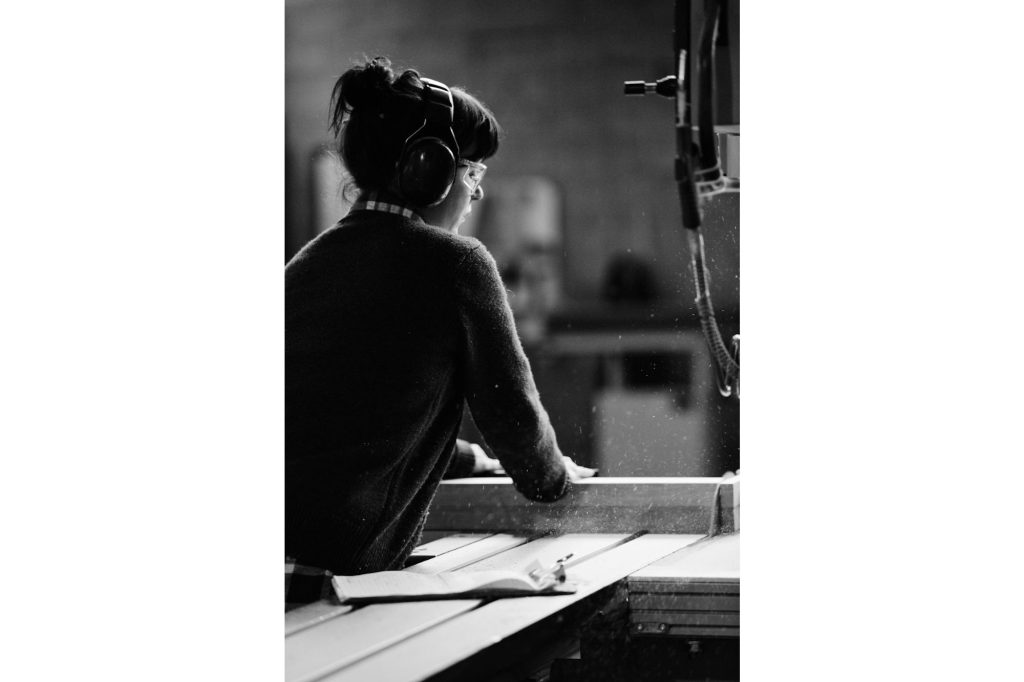
He’s also eager for customers to experience the Mark Tuckey difference. “So you can smell the timber and hear your tables being made. It’s quite an authentic experience versus going into a glitzy showroom.”
In this unique acquisition, Corporate Culture and Mark Tuckey Furniture have joined forces, forging a path that celebrates the timeless beauty of wood, the allure of Australian craftsmanship, and the importance of sustainable, locally sourced design.
Images supplied by Cult Furniture.
You Might also Like









